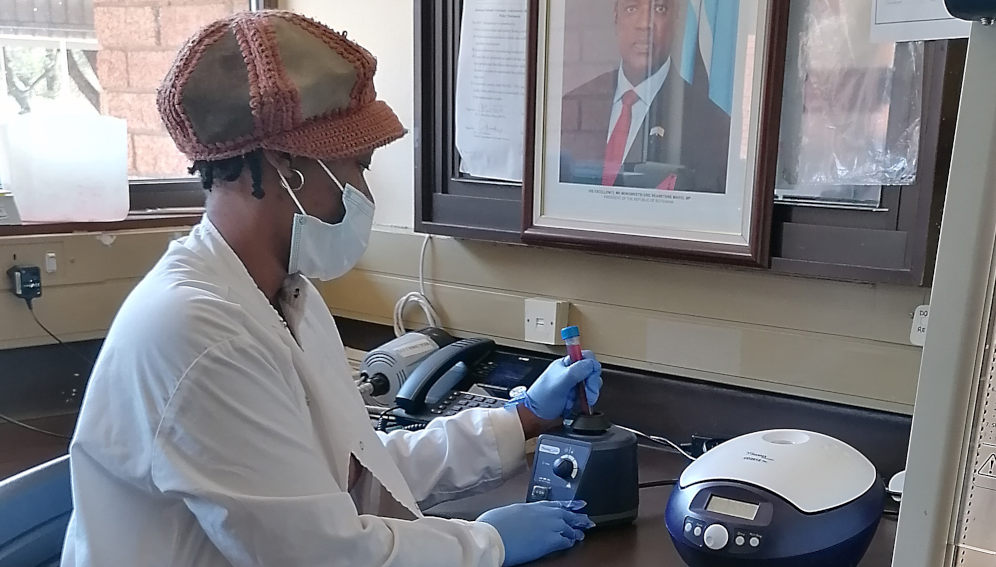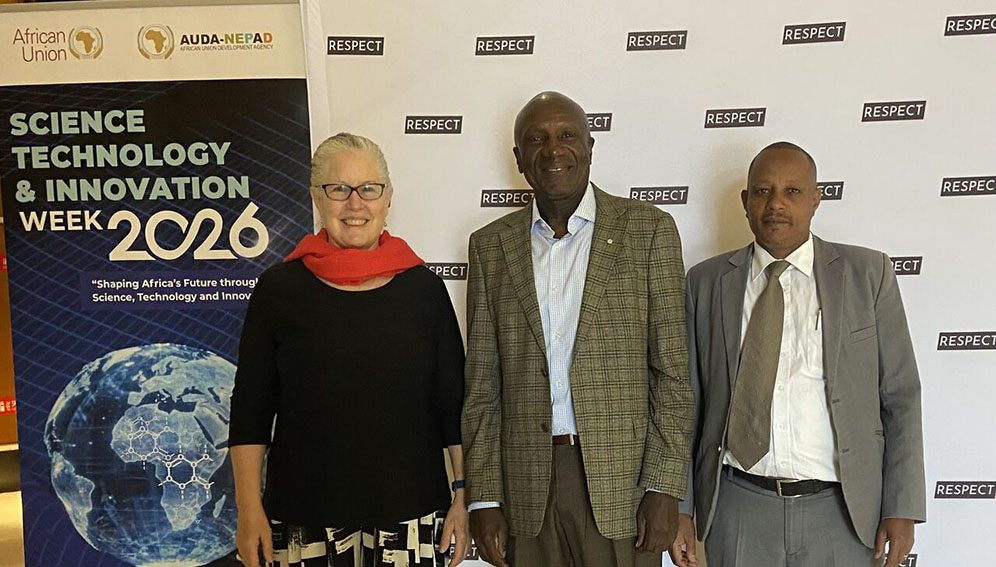SGCI News
A new research fund in Botswana will enable it to partner with other countries on research projects. Speed read Botswana’s new national research fund will support scientific progress The Science…
A new research fund in Botswana will enable it to partner with other countries on research projects.
| Speed read |
| Botswana’s new national research fund will support scientific progress |
| The Science Granting Council Initiative is playing a key role |
| Increased funding is expected to benefit health, education, security |
By Josfyn Uba
The Science Granting Councils Initiative (SGCI) is working with Botswana to build stronger science systems by supporting the establishment of the Botswana National Research Fund (BNRF).
The BNRF will be tasked to create Botswana’s research strategy which will include helping the government and the private sector work together and facilitating collaboration between countries in Sub-Saharan Africa.
Lesego Thamae, deputy permanent secretary of the Botswana Ministry of Communications, Knowledge and Technology, says the BNRF is also expected to significantly boost funding for research.
“The Botswana National Research Fund is still in the process of being established,” said Thamae, adding that it would likely be up and running before the end of the next financial year, in April 2025.
“The positive effects of increased science, technology and innovation funding will extend beyond immediate gains.”
Bolarinwa Kemisola, president, Women in ICT Foundation, Nigeria
“It is highly anticipated that funding will increase exponentially once the BNRF is established and fully operational,” Thamae stated.
Beyond financial assistance, the SGCI’s strategic support involves training government staff in areas such as research management, ethics, and intellectual property. For instance, the SGCI has facilitated the training of some Botswana staff at the South African Research and Innovation Management Association, Thamae said.
“The government of Botswana has learnt a lot in the areas of research management, ethics, and integrity, intellectual property management, programme evaluation, monitoring and evaluation, database management and grants management,” he added.
Thamae believes that Botswana now has the skills needed to manage collaborations and intercountry projects because of its SGCI membership.
“Initially, where Botswana had to partner with other Science Granting Councils for bilateral collaborative projects, the ministry relied on the engagement of other agencies for the administration of such projects on its behalf,” he explained.
“This was due to a lack of requisite structures and instruments to function adequately as a granting council.”

Thamae said the SGCI has enabled Botswana to collaborate successfully with 12 other countries on research projects and provided valuable learning that will benefit the BNRF after its establishment.
SGCI empowers science granting councils in Sub-Saharan Africa to support research and development. It fosters collaboration between the councils and funds and supports scientific research and innovation
Bolarinwa Kemisola, president of the Women in ICT Foundation, Nigeria, says the establishment of the Botswana National Research Fund is a commendable step toward fostering progress and collaboration in Sub-Saharan Africa.
She believes the fund will enable transformative progress across healthcare, transportation, security, and education.
“The positive effects of increased science, technology and innovation funding will extend beyond immediate gains,” Kemisola said.
“It will propel the nation towards alignment with advanced counterparts on the global stage.”
According to Kemisola, the Botswana fund will not only elevate the country’s standing in the international community but will encourage collaboration, knowledge exchange, and innovation, ensuring it remains at the forefront of progress.
Countries
Categories
Related News
Building Africa’s science future: inside the SGCI alliance
As Phase 3 of the Science Granting Councils Initiative launches on the margins of the African Union Summit in Addis Ababa last week, the SGCI Alliance Chair explains why this moment marks a decisive turning point for African science. Cephas Adjei Mensah describes what is…
Open call: Support for science granting councils in Sub-Saharan Africa
The International Development Research Centre (IDRC), through the Science Granting Councils Initiative (SGCI), has launched a call for proposals to support science granting councils in Sub-Saharan Africa in the establishment and operationalisation of the Capacity Strengthening Hub under Phase III of the SGCI-3. The Hub…
SGCI phase 3: USD 42M boost for Africa’s STI agenda
It was an exhilarating moment as the Science Granting Councils Initiative (SGCI) Phase 3 funding announcement was officially made yesterday during the Science, Technology, and Innovation (STI) Week 2026, held in Addis Ababa, Ethiopia. The STI Week, organised by AUDA-NEPAD and the African Union and…
SGCI funded projects
Rwanda’s integrated approach to sustainable agriculture and nutrition
Project Titles & Institution Areas of Research Number of Projects being funded Project Duration Grant Amount In-Kind Distribution Council Collaboration with other councils





